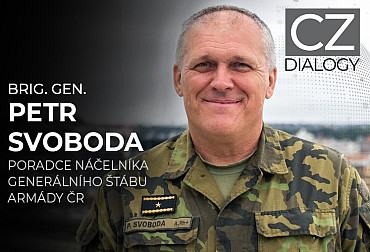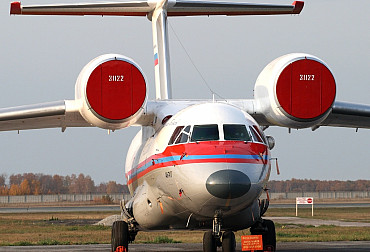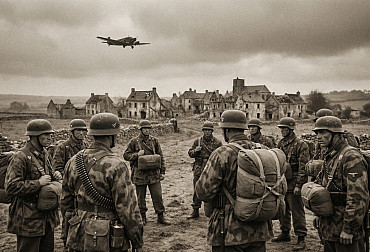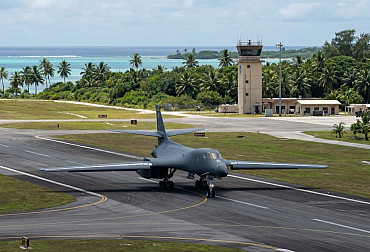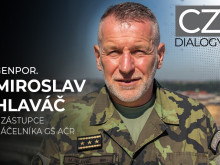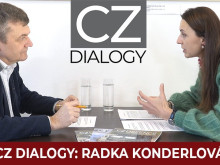Colonel Jiří Líbal: The 4th Brigade was lucky to be the first to be modernized
The 4th Rapid Deployment Brigade "Defence of the Nation" is one of the backbone units of the Czech Army. Currently, the brigade has three battalions and its ambition is to complete the fourth one, so that the 4th Brigade has the same number of battalions as before the removal of the 43rd Airborne Battalion in 2020, which became the 43rd Airborne Regiment - the third manoeuvre element of the Ground Forces of the Czech Armed Forces. Last October, Colonel Jiří Líbal moved from the commanding position of the aforementioned 43rd Airborne Regiment to the commanding position of the 4th Rapid Deployment Brigade, and it was not only in this context that we invited him back to our CZ DIALOGUES programme .
Video: Interview with Colonel Jiří Líbal, Commander of the 4th Rapid Deployment Brigade / CZ DEFENCE
High-quality and intensive training is an important part of the training, and Colonel Líbal had already advocated this in his previous posting with the 43rd Airborne Regiment. And he carried this type of training over to the 4th Brigade, where it is necessary to train mainly at the company and battalion level. The brigade's main tasks for this year are clear: training Ukrainian soldiers and several important international exercises, such as an exercise with the German 10th Armoured Division, where the 41st Mechanised Battalion is now operating. Exercises with the 82nd Airborne Division and with a mechanised division from Romania are also planned. "These are probably the most important tasks," Colonel Líbal said.
As far as the training of Ukrainian soldiers is concerned, it follows the same system as for Czech soldiers. "Before us, the 7th Brigade operated in Libava and I think they had four rotations there. This year's rotations were assigned to us," reveals the commander of the 4th Brigade. The 44th Light Motorised Battalion was assigned to train the Ukrainians. "The level of training starts with the individual and ends somewhere at the company level," adds Col. Líbal. The same training system is prepared for both Czech and Ukrainian soldiers, although there are some differences. "Ukrainian soldiers are different, and everyone must understand that. They are recruits, but you cannot think that they are recruits in the strict sense of the word. These soldiers have an average age of about forty-five years plus. So they are not young recruits, nor are they mobilised soldiers, because there has been no mobilisation in Ukraine. They are simply soldiers who joined the army to defend Ukraine," Colonel Líbal said.
Another peculiarity is that these new soldiers have either not been in the army at all, or they have been in the army for a very long time, or they have had a month of basic training in Ukraine. After completing five weeks of training in the Czech Republic, the soldiers return to Ukraine, usually straight to the front. The age diversity and experience of Ukrainian soldiers does not play a role. In this context, Colonel Líbal specifies that at present one unit of more experienced soldiers and two units of completely new soldiers are being trained in our country. "They learn very quickly because they are motivated," Líbal said.
The training of Ukrainian soldiers does not only give our soldiers experience from their own training, but it is also a chance to gain new experience from the Ukrainian battlefield. Colonel Líbal says that methodology is not the issue here at all. "It is more about the content of the training, what is important, what are the new elements, for example, protection against drones. A typical new element," says the commander of the 4th Armoured Brigade. After more than two years of war, there is a lot of experience from the Ukrainian battlefield that instructors of Ukrainian soldiers or soldiers from the front pass on, which the Czech army can learn from and modify further training. "These are things that we are able to implement into the training as quickly as possible," Colonel Líbal said, adding that drones simply have to be taken into account in the future.
Another element of change is the technology and conventional weaponry being introduced. According to Jiří Líbal, it is a combination of both. There is also progress in conventional armaments, where the Czech Republic has no experience of conventional warfare (our participation in foreign missions in Afghanistan or the Balkans cannot be counted out). The current military experience, according to the commander of the 4th Rapid Deployment Brigade, also shows that not everything we have abandoned in the past in the army has proved to be functional over time and it is not possible to return to it.
One of the mentioned aspects of the readiness of armies is undoubtedly deterrence and we were interested in what can help the 4th Brigade, as one of the 3 manoeuvre elements of the Ground Forces of the Czech Armed Forces, to deter a potential adversary as effectively as possible. According to Colonel Líbal, the 4th Brigade is only a small part of the whole, which as such should have an effect on the adversary. "We have to deter as the Army of the Czech Republic or the Czech Republic as a whole. It is that we will be well trained and equipped," said the 4th Brigade commander, who said training and other international interactions with other Alliance armies, including the fact that the 4th Brigade is deployed in international missions, are key. "The 4th Brigade has been deployed to Lithuania, it has been deployed to Slovakia. The main task of these missions in the Baltic or in the multinational battle group in Slovakia is deterrence. And that is what we are contributing, that we are sending a unit there, that we are training with an ally and showing that we are determined, united and that we are ready," Col.
Another strong theme in the army is the modernisation of existing equipment, weapons and equipment in individual units of the Czech Armed Forces. As for the 4th Rapid Deployment Brigade, Colonel Líbal says the brigade was lucky to be the first to be modernised. "We were the first to get something new, Pandurs. It was almost fifteen years ago. Maybe those Pandurs are, let's say, past half their useful life, but in the amount of funding and new projects the army had, we were the first ones. The others are still waiting," Colonel Líbal said. However, modernisation is a never-ending story, which is why the existing Pandur II 8x8 CZ vehicles are also due for an upgrade, or the so-called Mid-Life Upgrade. In this context, Jiří Líbal says that he is definitely counting on upgrading the weapon stations, armour, crew protection and, of course, the communications equipment. "When you have a radio for 15 years, of course, specially in these systems it goes forward quickly. When you have it for two years, it's already old," cites the example of the commander of the 4th Rapid Deployment Brigade, according to whom the brigade would welcome unmanned assets in its armament, such as FPV attack drones, which Col. Líbal said should already be available at least in a reconnaissance version.
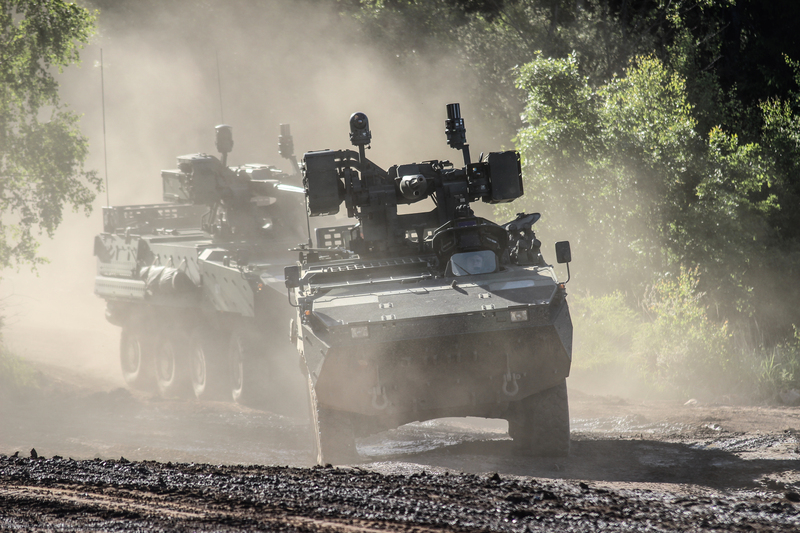
We were interested in what foreign exercises the 4th Brigade is going to do. According to the commander of the 4th Brigade, the soldiers won't be staying home too long. "We have a lot of exercises before the half year. Let's name WETTINER SCHWERT 24. It's an exercise with the 10th Armored Division of Germany. We have, I would say, intensified cooperation here. In Germany, we will be practicing a classic conventional operation, where it is about overcoming water obstacles," Colonel Líbal says, adding that the soldiers will probably cross the Elbe River. "As I said, we have to maintain the capabilities of the brigade group headquarters. So the complete command, the staff, including subordinate units, including those that do not belong to the fourth brigade but belong to the fourth brigade group, will be in Germany for about a month. We'll be doing sustainment exercises for the headquarters in coordination with other brigades under the Romanian and American divisions. And, of course, we're still training Ukrainian soldiers."
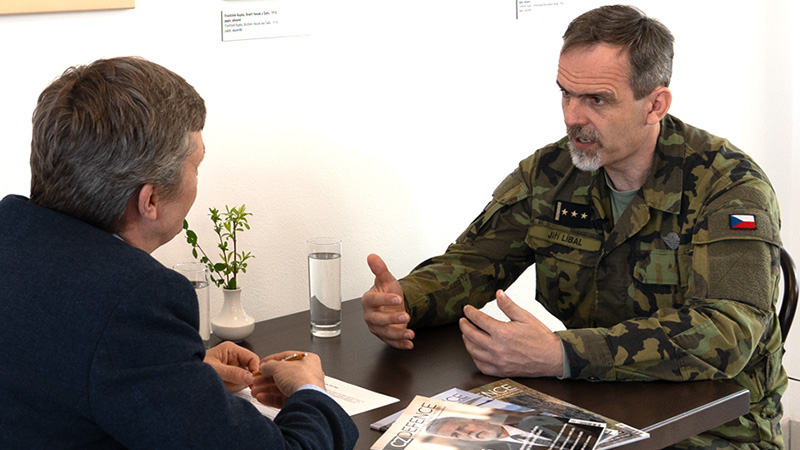
We also asked Colonel Líbal in an interview what he would like to achieve as commander of the 4th Brigade. The answer was clear. His priority is training. Also because the modernisation process cannot be tied to a specific period, it is a continuous process. "I would definitely like to take the training of the brigade to a higher level. It clearly shows that we need to train in those higher units, which is the company and battalion level. And that obviously applies to staffs that can have some staff drills at that level. I would like to see more intensive drills where the battalion is all brought out and the staff physically plans and directs the fight in the field. Same at the brigade level. And, of course, increase and certainly implement unmanned assets, both air and ground. This is the basis," says the commander of the 4th Rapid Deployment Brigade, Colonel Jiří Líbal.
In the interview we further discussed the topics of recruitment and the army as a permanent and solid employer or personal experiences from missions. To learn more, listen to the full interview at the beginning of this article.











